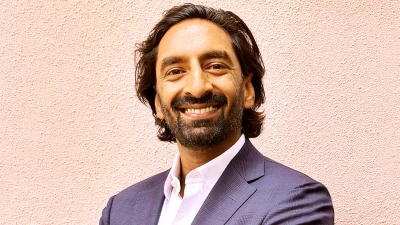FOFA debate hurting share prices



The share prices of Australia’s major publicly listed financial planning groups have been trending down for most of the past 14 months and, as Mike Taylor reports, at least a part of the reason is ongoing uncertainty around the Future of Financial Advice changes.
When Count Financial acquired a small but strategic stake in competitor dealer group DKN Financial Group in February last year, it did so at a time when the fortunes of financial planning companies were recovering strongly from the sharemarket lows encountered during the global financial crisis.
There had been some prior history between Count Financial and DKN, but Count executive chairman Barry Lambert chose at the time to describe the purchase of the 5 per cent stake as being “strategic and long-term”.
“We purchased the stock with a view to the consolidation we believe will occur in the industry,” he said, adding that he believed significant similarities and synergies existed between the Count and DKN businesses – particularly with respect to Lonsdale.
It is worth reflecting, therefore, that DKN’s share price at the time Count Financial purchased its “strategic and long-term” stake was sitting around double what it was when IOOF made its “unsolicited, indicative, non-binding proposal”.
At 75 cents per share, the IOOF bid looked like a generous premium on a share price trading at between 40 and 50 cents per share.
Nonetheless it was well below the more than 80 cents a share paid by Count some 16 months earlier.
Little wonder, therefore, that Count chief executive Andrew Gale emerged a few days later to suggest that Count, at least, did not regard the IOOF offer as representing “fair value”.
“It would represent an extremely well-priced deal for IOOF,” he said. “We do not believe it would be acceptable to other shareholders.”
IOOF already owns 19 per cent of DKN, with the remainder being owned by big Swiss-based insurer Zurich. However, in the same manner in which Zurich disposed of its ownership of research and ratings house, Lonsec, it is believed to no longer regard DKN as being a core part of its business.
While Gale and IOOF managing director Chris Kelaher may disagree about whether the 75 cents per share offer for DKN represents “fair value”, they would not quibble with the fact that global economic events have combined with the policy uncertainty around the proposed Future of Financial Advice (FOFA) changes to create some excellent buying opportunities.
 Indeed, as indicated by figure 1, a simple analysis of the share prices for Australia’s major, publicly listed independent dealer groups reveals their underlying value has been trending down since the around April and May, 2010 – notwithstanding some recovery between the immediate post-election period and January 2011.
Indeed, as indicated by figure 1, a simple analysis of the share prices for Australia’s major, publicly listed independent dealer groups reveals their underlying value has been trending down since the around April and May, 2010 – notwithstanding some recovery between the immediate post-election period and January 2011.
The only significant difference between the relative share price performance of Count and DKN is that the latter’s share price shot north in the immediate aftermath of the IOOF bid.
A similar trend can be seen with respect to the share price of another publicly listed independent dealer group, the West Australian-based Plan B.
Gale made clear he believed recent events were a manifestation of the current policy uncertainty and a confirmation that one of the unintended consequences of the FOFA changes would be a further consolidation of the financial planning industry, with major institutional players growing at the expense of the independents.
Given his position as the man tasked with running the target company amid the growing debate about its relative value in the market, DKN chief executive Phil Butterworth has been necessarily circumspect, confining his comments to the company’s official announcement to the Australian Securities Exchange on the IOOF bid.
However, Butterworth appeared to signal DKN’s own estimation of its value by referencing “the quality assets of DKN which include the Lonsdale Group and the company’s equity positions in a number of wealth management practices”.
Of course, IOOF is only likely to pick up DKN at the perceived bargain-basement price if no other players see fit to mount a bid.
As last week drew to a close, Count appeared to be remaining on the sidelines and the major banking groups, such as ANZ, were showing no particular interest in throwing their hats into the ring.
For Zurich and the other major DKN shareholders, the IOOF bid at 75 cents a share was looking attractive based on nothing more than being the only game in town.
Recommended for you
In this week’s episode of Relative Return Insider, AMP chief economist Shane Oliver joins the show to break down the Reserve Bank’s recent decision to cut interest rates to their lowest level since early 2023, and how it highlights a notable pivot in the central bank’s stance.
In the latest episode of Relative Return, host Laura Dew chats with Haran Karunakaran, fixed income investment director at Capital Group, to discuss why fixed income solutions are back in the spotlight of client portfolios for advisers.
In this week’s episode of Relative Return Insider, Financial Services Council CEO Blake Briggs joins the show to break down what the federal election and new-look Treasury portfolio mean for the financial services industry.
In this episode of Relative Return, host Laura Dew chats with Andrew Lockhart, managing partner at Metrics Credit Partners, about the case for private debt, a fast-growing asset class gaining attention from advisers.












